In today's rapidly evolving digital landscape, cloud security has transitioned from a supplementary skill to an essential expertise. As organizations increasingly migrate to cloud environments, the complexity and frequency of security threats have escalated, underscoring the critical need for proficient cloud security professionals.
The Escalating Significance of Cloud Security
The adoption of cloud computing offers numerous benefits, including scalability, cost-efficiency, and flexibility. However, it also introduces a spectrum of security challenges that organizations must address to protect their data and maintain trust.
Prevailing Cloud Security Risks
- Misconfigurations: Cloud misconfigurations remain a predominant security risk. A study by the Cloud Security Alliance revealed that 17% of organizations experienced a public cloud security incident due to misconfigurations in the past year.
- Insecure APIs: Application Programming Interfaces (APIs) are integral to cloud services. However, insecure APIs can expose organizations to significant vulnerabilities. Notably, 92% of organizations experienced an API-related security incident in the past year.
- Lack of Visibility: The dynamic nature of cloud environments can lead to reduced visibility into infrastructure and data flows, hindering effective security monitoring and incident response. Approximately 49% of organizations identify lack of security visibility and monitoring capabilities as primary causes of cloud misconfigurations.
Cloud Security as a Catalyst for Career Advancement
The burgeoning importance of cloud security has created a robust demand for professionals equipped with the requisite skills to safeguard cloud infrastructures.
High Demand Amidst a Talent Shortage
The (ISC)² 2024 Cybersecurity Workforce Study indicates a global cybersecurity workforce gap of 4.8 million professionals, with cloud security identified as a critical area of need.
Pathway to Executive Roles
Expertise in cloud security serves as a conduit to leadership positions such as Chief Information Security Officer (CISO) and Head of Security. These roles involve strategizing and implementing comprehensive security measures across organizations.
Lucrative Compensation
Professionals specializing in cloud security are rewarded with competitive salaries. According to industry reports, cloud security engineers earn between $130,000 and $180,000 annually, while leadership roles can command salaries exceeding $250,000.
Essential Skills and Certifications for Cloud Security Professionals
To excel in cloud security, professionals should acquire a blend of technical proficiency, strategic insight, and compliance knowledge. Key certifications that can accelerate career progression include:
Technical Expertise
- Certified Cloud Security Professional (CCSP): This certification covers cloud architecture, data security, and governance, making it essential for senior security roles.
- AWS Certified Security – Specialty: Focused on securing AWS workloads, this certification is vital for professionals working with Amazon Web Services.
- Google Professional Cloud Security Engineer: Ideal for securing Google Cloud environments, this certification validates the ability to design and implement secure infrastructures on Google Cloud Platform.
- Microsoft Certified: Cybersecurity Architect Expert: This advanced certification is tailored for professionals securing Microsoft Azure environments.
Governance and Compliance
- Certified Information Systems Security Professional (CISSP): Recognized globally, CISSP is the gold standard for cybersecurity leadership roles, encompassing a broad spectrum of security topics.
- Certified Information Security Manager (CISM): Ideal for IT managers aspiring to move into strategic security leadership, CISM focuses on managing and governing an enterprise's information security program.
- ISO/IEC 27001 Lead Auditor: This certification equips professionals with the skills to implement and audit security frameworks within organizations.
Implementing Best Practices in Cloud Security
For professionals aiming to transition into cloud security leadership roles, mastering best practices is crucial to effectively secure cloud environments.
Identity and Access Management (IAM)
- Zero Trust Security Models: Implementing a Zero Trust approach ensures that all users, both inside and outside the organization's network, are authenticated and authorized before accessing resources.
- Multi-Factor Authentication (MFA): Requiring multiple forms of verification enhances account security and reduces the risk of unauthorized access.
- Principle of Least Privilege (PoLP): Limiting user access rights to the minimum necessary reduces potential attack surfaces.
Data Protection and Compliance
- Encryption: Utilizing robust encryption methods, such as AES-256, protects data at rest and in transit from unauthorized access.
- Cloud Security Posture Management (CSPM): Deploying CSPM tools automates compliance monitoring and ensures adherence to security policies.
- Regulatory Frameworks: Understanding and implementing frameworks like GDPR, HIPAA, SOC 2, and NIST are essential for compliance and data protection.
Threat Detection and Incident Response
- Security Information and Event Management (SIEM): Utilizing SIEM tools like Splunk, AWS GuardDuty, and Azure Sentinel facilitates real-time monitoring and threat detection.
- Automated Response Playbooks: Implementing automated security response mechanisms using cloud-native tools ensures swift action against detected threats.
- Regular Assessments: Conducting periodic penetration testing and vulnerability assessments identifies and mitigates potential security weaknesses.
Career Trajectories in Cloud Security
Professionals with cloud security expertise have diverse career paths, ranging from technical roles to strategic leadership positions.
Technical Roles
- Cloud Security Engineer: Responsible for securing cloud infrastructure and ensuring compliance, with salaries ranging from $130,000 to $180,000 annually in the United States.
- Cloud Security Architect: Tasked with designing secure cloud environments and implementing security controls. In the United Kingdom, the average salary for this role is approximately £80,000 per year, with entry-level positions starting at £70,000 and experienced professionals earning up to £95,000 per year.
Leadership Roles
- Security Operations Manager: Oversees incident response, Security Information and Event Management (SIEM) operations, and compliance audits. In the United Kingdom, the average salary for this role is £42,786 per year.
- Chief Information Security Officer (CISO): Leads enterprise-wide security strategy, ensuring compliance and risk management. In the United States, the average compensation for CISOs was reported to be $565,000 in 2024.
Advancing Your Career in Cloud Security
To elevate your career into cloud security leadership, it is essential to invest in continuous learning and skill development. Gaining technical expertise, obtaining industry-recognized certifications, and implementing security best practices position you for top-tier security roles.
Take the Next Step in Cloud Security with KodeKloud
Ready to advance your career in cloud security?
At KodeKloud, we offer comprehensive courses designed to equip you with the essential skills and certifications to excel in this dynamic field. Stay ahead of the curve with expert-led training on the latest technologies and best practices.
Join our cloud security courses today and unlock new opportunities to become a sought-after professional in the security domain.



Start Your Cloud Security Journey with KodeKloud Now!
🔗 Join the KodeKloud Community – Connect with others, ask questions, and learn from experts!
Join Now






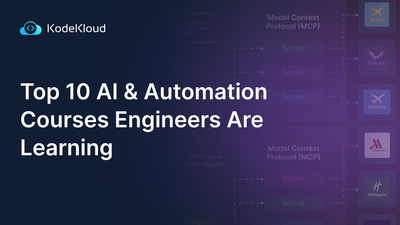
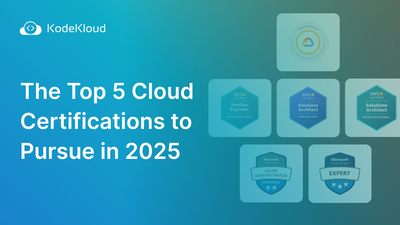
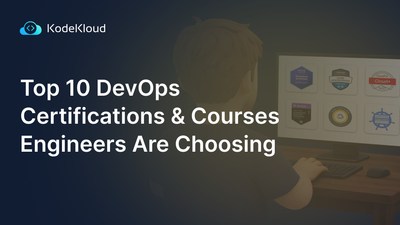

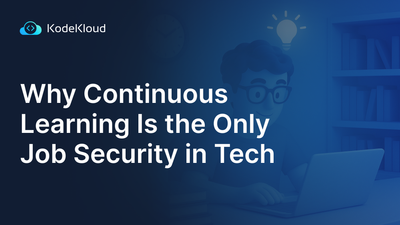


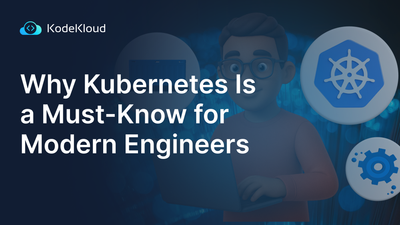

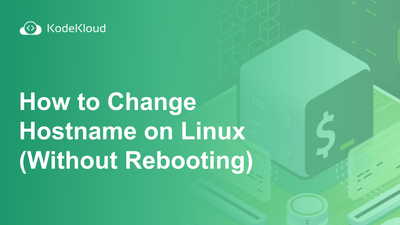

Discussion